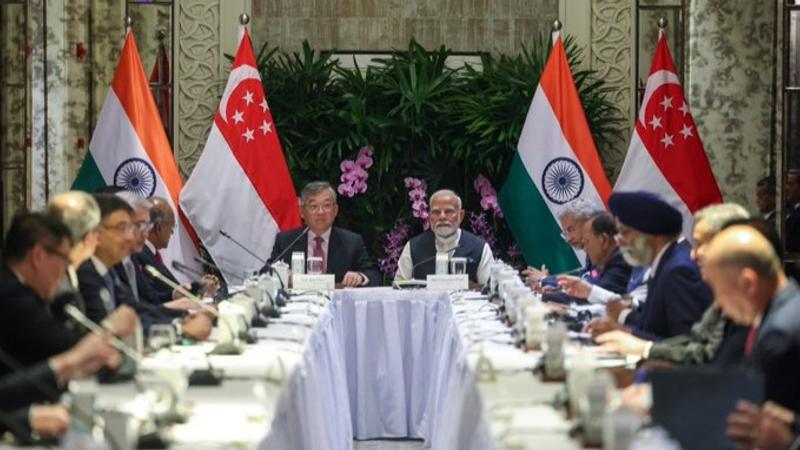Published 07:41 IST, October 14th 2024
Singapore keeps monetary policy steady as Q3 growth picks up
MAS said it will maintain the prevailing rate of appreciation of its exchange rate-based policy band known as the Nominal Effective Exchange Rate.

Singapore monetary policy: Singapore's central bank on Monday left its monetary settings unchanged, as expected, as data showed the economy perked up in the third quarter though analysts are betting on a loosening in policy early next year to guard against external risks.
The Monetary Authority of Singapore (MAS) said it will maintain the prevailing rate of appreciation of its exchange rate-based policy band known as the Nominal Effective Exchange Rate.
The width and the level at which the band is centred would also be maintained, the MAS said.
"The risks to Singapore's inflation outlook are more balanced compared to three months ago," MAS said in a statement, adding that growth momentum has picked up.
Separately, advance trade ministry data earlier showed gross domestic product ( GDP ) grew 4.1 per cent year-on-year in the third quarter underpinned by a boost in manufacturing, accelerating from 2.9 per cent in the second quarter, and policymakers expressed optimism about the 2025 outlook.
"The growth outlook is more sanguine," said OCBC economist Selena Ling, but added that geopolitics and trade conflicts are concerns for the city state and that MAS has an opportunity to loosen policy at its next review in January.
Capital Economics markets economist Shivaan Tandon concurred, saying "the risk of keeping monetary policy too tight for too long will take centre stage soon prompting the central bank to pivot".
MAS said it expects the economy to grow at the upper end of the trade ministry's adjusted GDP growth forecast range of 2.0 per cent to 3.0 per cent for 2024, but cautioned that external risks posed "significant" uncertainty for next year.
"A sharp escalation in geopolitical and trade conflicts could exert sizeable drags on global and domestic investment and trade," the central bank said.
Singapore is often seen as a bellwether for global growth as its international trade dwarfs its domestic economy.
MAS expects core inflation to decline further to around 2 per cent by the end of 2024.
Core inflation has tapered from a peak of 5.5 per cent in early 2023, and hit a 2-1/2 year low of 2.5 per cent in July before edging up to an annual 2.7 per cent in August.
As a heavily trade-reliant economy, Singapore uses a unique method of managing monetary policy, tweaking the exchange rate of its dollar against a basket of currencies instead of domestic interest rates like most other countries.
It adjusts policy via three levers: the slope, mid-point and width of the policy band.
The MAS tightened policy five times between October 2021 and October 2022, including in two off-cycle moves, to tame inflation during the pandemic and amid global geopolitical instability. Since then, it has held steady as concerns over economic growth trumped inflation.
Capital Economics' Tandon expects the manufacturing-led uptick in economic growth to fade amid slowing global demand, prompting the MAS to respond.
"With policy very tight by historical standards, the economy set to weaken and the MAS now appearing less concerned about inflation, we expect the central bank to loosen policy in January."
Updated 07:41 IST, October 14th 2024